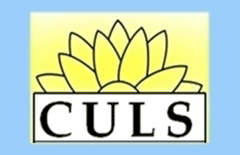Keywords
institutional repository, open access, comparison, CONTENTdm, Bepress, Digital Commons
Abstract
The digital repository serves as a Green Open Access solution to globally share scholarship produced by the university community. Both Pittsburg State University (PSU) and Fort Hays State University (FHSU) previously used CONTENTdm (CDM) as their primary digital repository. In 2015, both PSU and FHSU purchased and launched Bepress Digital Commons (DC), a more robust repository. Considering global discoverability, unlimited storage, efficient technical support, and the ability to share a wide range of file formats in one interface, Digital Commons by Bepress is the most reliable for small institutions.
This paper is based on the presentation delivered by PSU and FHSU at the Kansas Library Association-College and University Library Section Spring Conference, April 21-22, 2016. This paper will address the experiences of adapting and implementing the IR at small institutions and the challenges associated with IR initiatives including marketing, workflow, and collection development. This paper will also compare and contrast advantages and disadvantages of the two platforms, CONTENTdm and Bepress Digital Commons.
Creative Commons License

This work is licensed under a Creative Commons Attribution-Noncommercial-No Derivative Works 4.0 License.
Recommended Citation
White, Deborah L. and Ohira, Yumi
(2016)
"Creating Green Open Access to Institutional Scholarship using Digital Commons,"
Kansas Library Association College and University Libraries Section Proceedings:
Vol. 6:
No.
1.
https://doi.org/10.4148/2160-942X.1055
References
Amaral, M. (n.d.). Institutional Repositories, Open Source Options, and Libraries.
Retrieved from https://core.ac.uk/download/files/418/11884820.pdf
Association of Research Libraries. (2002). ARL Bimonthly Report 223. Retrieved from
http://sparcopen.org/wp-content/uploads/2016/01/instrepo.pdf
Brantley, S., Bruns, T., and Duffin, K. "Leveraging OA, the IR, and Cross Department
Collaboration for Sustainability: Ensuring Library Centrality in the Scholarly
Communication Discourse on Campus" ACRL Proceedings 2015 (2015). Retrieved from http://www.ala.org/acrl/sites/ala.org.acrl/files/content/conferences/confsandpreconfs/2015/Brantley_Bruns_Duffin.pdf
Connolly, A. (2016). The Modern Repository: Aligning the Library with the University Mission.
Retrieved from http://digitalcommons.Bepress.com/webinars/82/
Duranceau, E. F., and Kriegsman, S. (2013). Implementing Open Access Policies Using
Institutional Repositories. In Pamela Bluh and Cindy Hepfer (Eds.), The Institutional
Repository: Benefits and challenges. (pp. 75-97). Chicago, IL: American Library
Association. Retrieved form http://nrs.harvard.edu/urn-3:HUL.InstRepos:10202474
Lovett, J. and Rathemacher, A. (2014). Open Access and the Institutional Repository.
Retrieved from http://digitalcommons.uri.edu
Watson, C. A. and Donovan, J. M. (2011). “Institutional Repositories: A Plethora of
Possibilities.” Law Library Management and Technology. 21: 19-24. Retrieved from
http://uknowledge.uky.edu/cgi/viewcontent.cgi?article=1434&context=law_facpub


